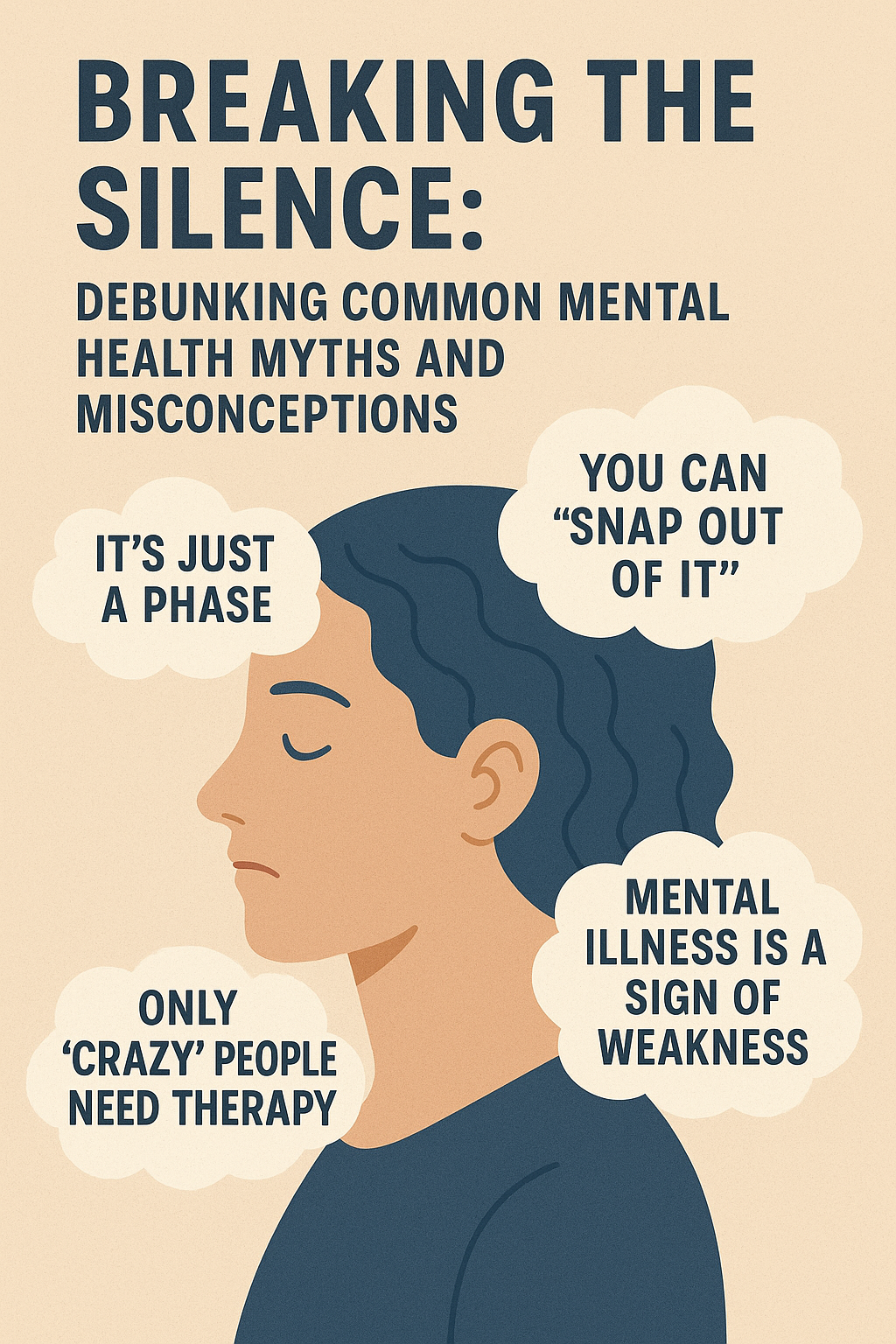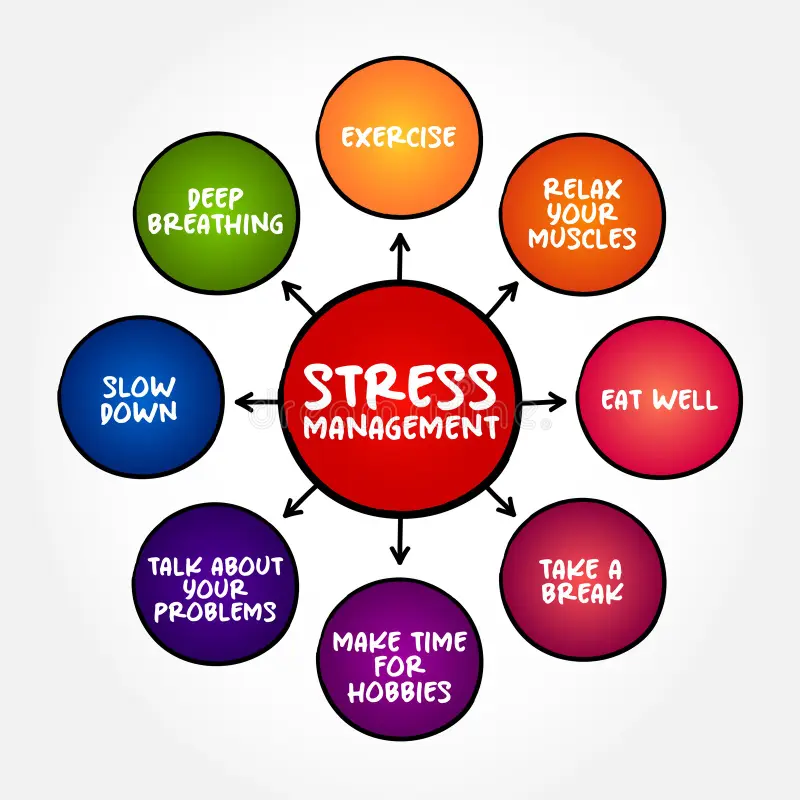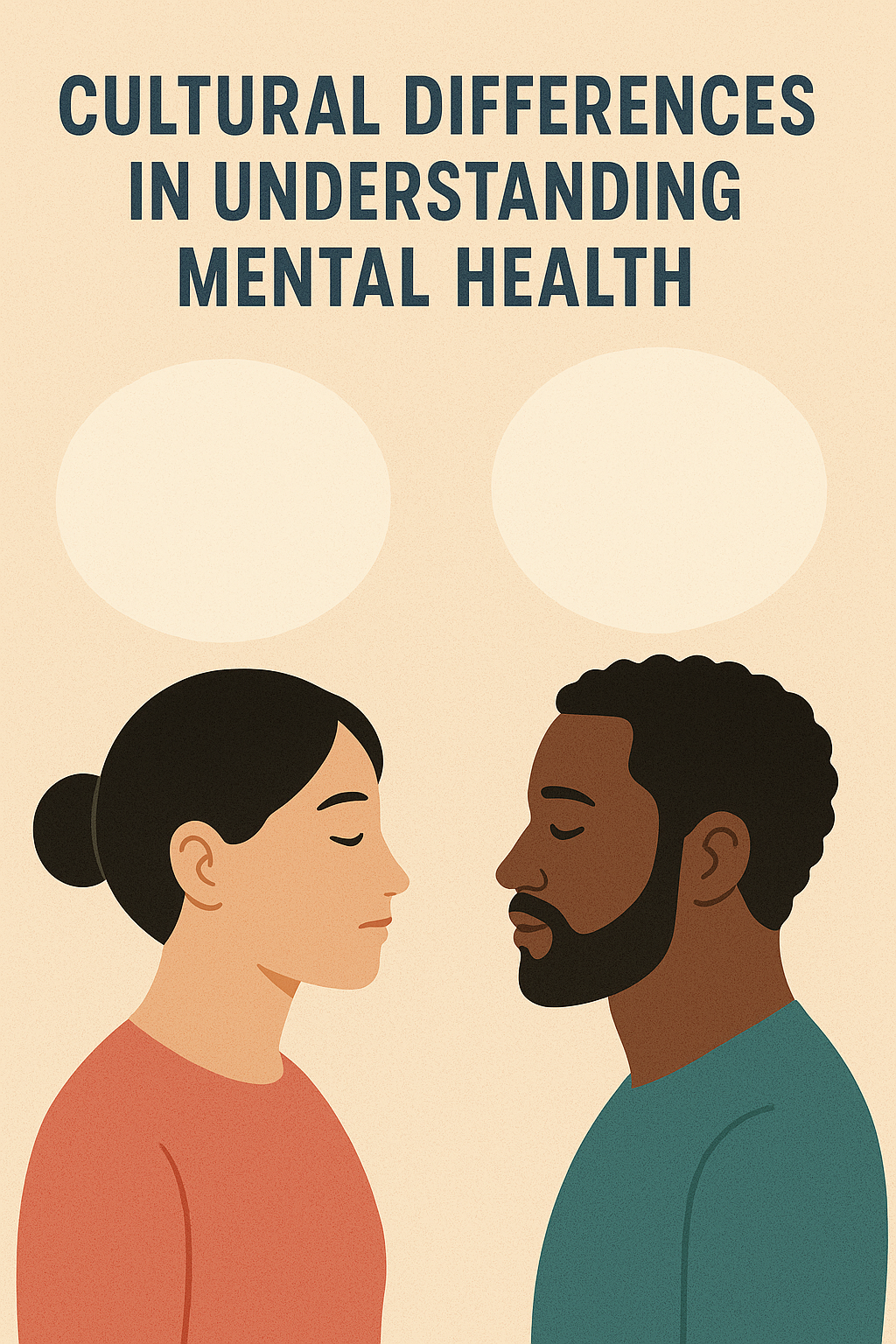Mental health is an essential part of our overall well-being, yet it remains one of the most misunderstood and stigmatized areas of health. Despite growing awareness, many myths and misconceptions about mental health continue to circulate, often preventing individuals from seeking the help they need.
Mental health problems are rare
Mental health issues are incredibly common. According to the World Health Organization, 1 in 8 people globally live with a mental disorder. Conditions like anxiety, depression, and bipolar disorder affect people from all walks of life regardless of age, gender, income, or background.
People with mental illness are violent or dangerous
This is a harmful stereotype. Most people with mental health conditions are not violent. They are more likely to be victims of violence than perpetrators. Media portrayals often exaggerate or misrepresent the link between mental illness and violence, contributing to unnecessary fear and stigma.
Mental health issues are a sign of weakness
Mental health challenges are not a sign of personal weakness or character flaws. They are health conditions just like diabetes or asthma and they can be caused by a combination of biological, psychological, and environmental factors. Seeking help is a sign of strength, not weakness.
Only adults experience mental health problems
Mental health issues can affect people at any age. Children and adolescents can also experience anxiety, depression, ADHD, and other mental health conditions. Early intervention is crucial and can lead to better outcomes over time.
Therapy is only for people with severe mental illness
Therapy can benefit anyone, not just those with diagnosed mental illnesses. People seek therapy for many reasons stress, grief, relationship issues, personal growth, or managing work-life balance. Talking to a mental health professional is a proactive step toward overall wellness.
You can just “snap out of it” or think positively
Mental health conditions are not simply a matter of mindset. While positive thinking can be helpful, it is not a cure. Mental health disorders often require treatment, support, and time. Dismissing someone’s struggle as something they can "snap out of" invalidates their experience and can make them feel more isolated.
Medication is the only solution
Medication can be an important part of treatment for some, but it’s not the only option. Many people benefit from therapy, lifestyle changes, peer support, and other non-medication approaches, sometimes in combination. Mental health treatment is highly individualized and should be tailored to each person’s needs.
Challenging these myths is more than just setting the record straight, it’s about fostering a society where people feel safe and supported in seeking help. When we replace misinformation with empathy and knowledge, we break down the barriers that prevent people from getting the care they need.




